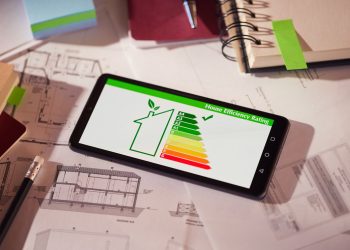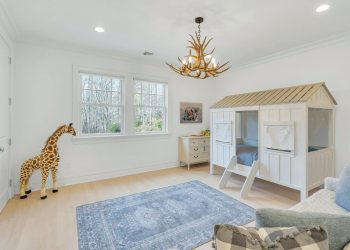Investing in a condominium can be an enticing prospect for many prospective homeowners. With amenities, maintenance, and a sense of community all bundled into one package, condos offer a unique living experience.
However, potential buyers must know several hidden condo costs amidst the allure. We will shed light on these often-overlooked expenses, focusing on condo fees and special assessments, two critical components of condo ownership.
Potential buyers should always ask questions before buying a condo. Let’s examine some essential considerations.
What are condo fees?
Condo or homeowners association (HOA) fees or maintenance fees are regular payments made by condo owners to cover the shared expenses of managing the condominium complex. They are typically paid monthly to the condominium association.
These fees typically cover the cost of maintaining common areas such as lobbies, hallways, elevators, swimming pools, gyms, landscaping, security, and other amenities.
Additionally, they may include expenses like insurance for the building’s exterior, utilities for shared spaces, and even garbage disposal.
The amount of condo fees can vary significantly based on several factors, including the size of the condo, the number and extent of shared amenities, and the overall maintenance requirements of the building. They are essential for the smooth functioning and upkeep of the condo community.
Still, they can significantly add a considerable burden to your monthly budget if they increase over time.
Hidden costs in condo fees
While condo fees are known and expected expenses, buyers must be vigilant about the potential hidden costs within these fees. Some hidden costs of buying a condo may include the following:
- Specialized services: Some condo complexes may offer technical services, such as concierge services, dog walking, or package handling. While these services can be convenient, they might come at an extra cost beyond the standard condo fees.
- Capital reserves: Responsible condo associations set aside funds for future repairs and major renovations in a capital reserve account. However, some associations may not adequately maintain these reserves, leading to potential special assessments when unexpected repairs are required. Lack of funding would be considered a financial red flag.
- Management company fees: Condo communities often hire management companies to handle day-to-day operations. The cost of these services is typically included in the condo fees, but it’s essential to inquire about the specific management services and prices involved.
- Legal and administrative costs: Legal and administrative expenses incurred by the condo association, such as hiring lawyers for disputes or administrative costs related to managing the association, may sometimes be passed on to the condo owners.
Special assessments
This additional fee is charged to condo owners to cover unexpected or large-scale expenses beyond regular condo fees. A special assessment is typically implemented when the condo association faces financial shortfalls, often due to significant repairs, renovations, or legal actions.
These assessments can be a substantial financial burden, usually billed as a lump sum or spread over several months.
They can arise due to various reasons, including:
- Emergency repairs: If the condominium faces a sudden structural issue or significant damage not covered by insurance, the association may levy a special assessment to fund the repairs.
- Significant renovations: Upgrades to the building’s infrastructure, such as replacing the roof, elevators, or plumbing systems, might trigger a special assessment if the reserves are insufficient.
- Legal disputes: If the condo association is involved in a lawsuit or legal dispute, the legal fees may be distributed among the owners through a special assessment.
- Unforeseen natural disasters: Natural disasters, such as hurricanes, floods, earthquakes, or wildfires, can cause significant damage to condo buildings and common areas. The condo association may impose a special assessment to cover repairs and restoration costs in such cases.
- Code compliance and safety upgrades: Changes in building codes and safety regulations may require the condo association to undertake costly upgrades or renovations to meet new standards. For instance, installing fire sprinkler systems, upgrading electrical systems, or improving accessibility for people with disabilities could lead to an assessment.
- Deferred maintenance: If the condo association has deferred necessary maintenance and repairs for an extended period, it may lead to more extensive and expensive fixes down the line. To address deferred maintenance, a special assessment might be necessary to fund these overdue repairs.
- Lawsuit settlements: If the condo association loses a lawsuit or faces a costly legal settlement, a special assessment may share the financial burden among the condo owners.
Final thoughts
While purchasing a condo offers numerous advantages, prospective buyers must know the hidden costs of condo ownership.
While essential for maintaining the building and its amenities, Condo fees may harbor hidden expenses that buyers should investigate thoroughly before deciding.
Additionally, the possibility of special assessments can impose unforeseen financial burdens on condo owners.
To make an informed decision, potential buyers must carefully review the condo association’s financial statements, reserve fund status, and any history of special assessments.
Moreover, seeking the guidance of a qualified real estate agent and a financial advisor can help buyers navigate the complexities of condo ownership and avoid any unpleasant surprises down the road.
With proper due diligence, a condo can still be an excellent investment and a rewarding place to call home.













I agree with this article as it is written. However, you did not mention other important hidden costs that an HOA doesn’t cover such as repairs needed to repair, fix, maintainor replace your HVAC, your water heater, your windows and or sliding glass door to your porch or balcony.
You needed to mention that some HOAs require HO6 (walls-in) insurance to cover such issues as damage to your walls and ceiling due to a burst water pipe. While the HOA will cover a major pipe burst, the condo owner is on the hook for the resulting damage to the walls, ceiling, floors, furniture, cabinetry etc. As one can see, even if the HOA doesn’t require HO6 insurance, it sure is in the condo owners best interest and protection to get some.
Steven Edward Noeltner
Charles Rutenberg Realty, Inc